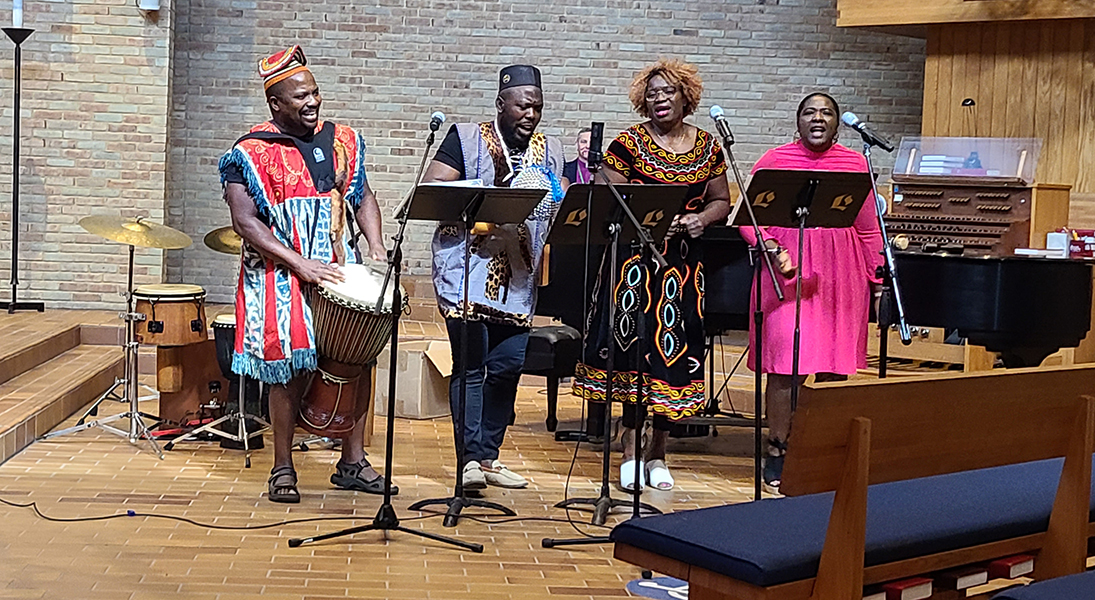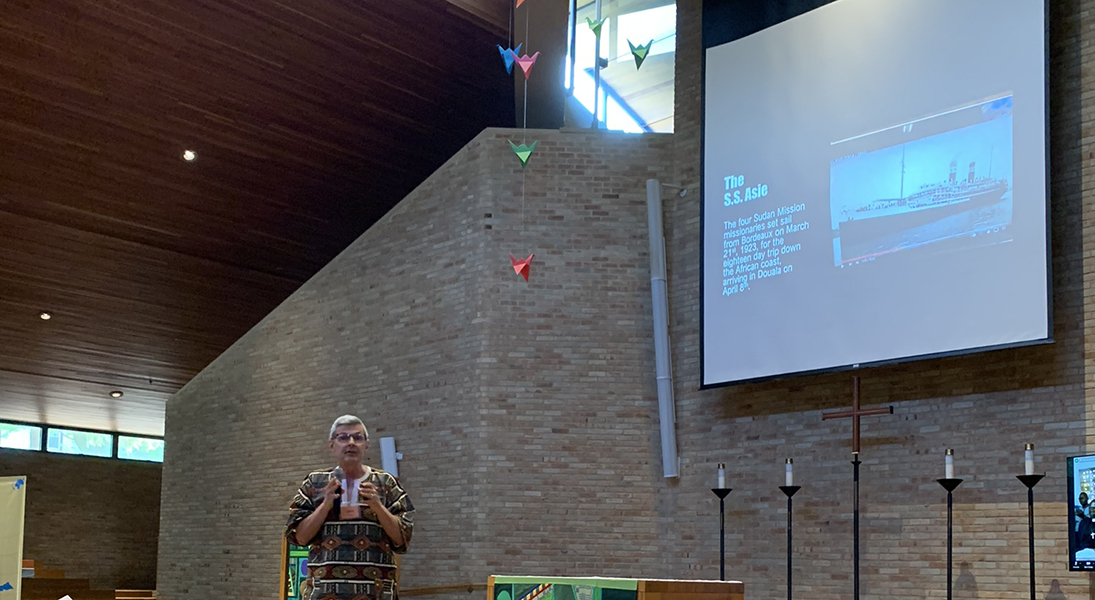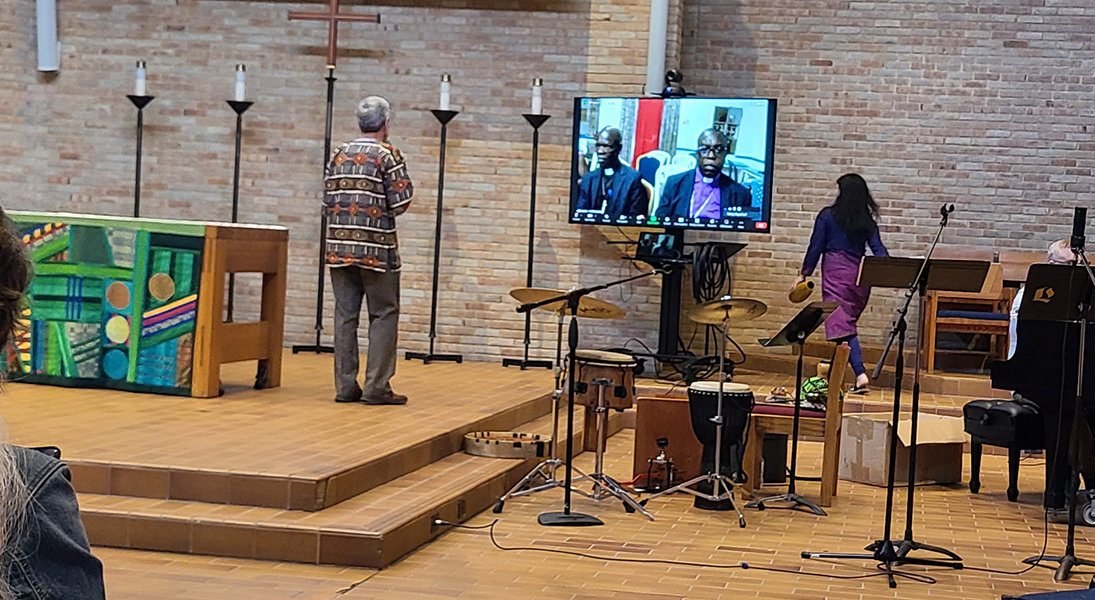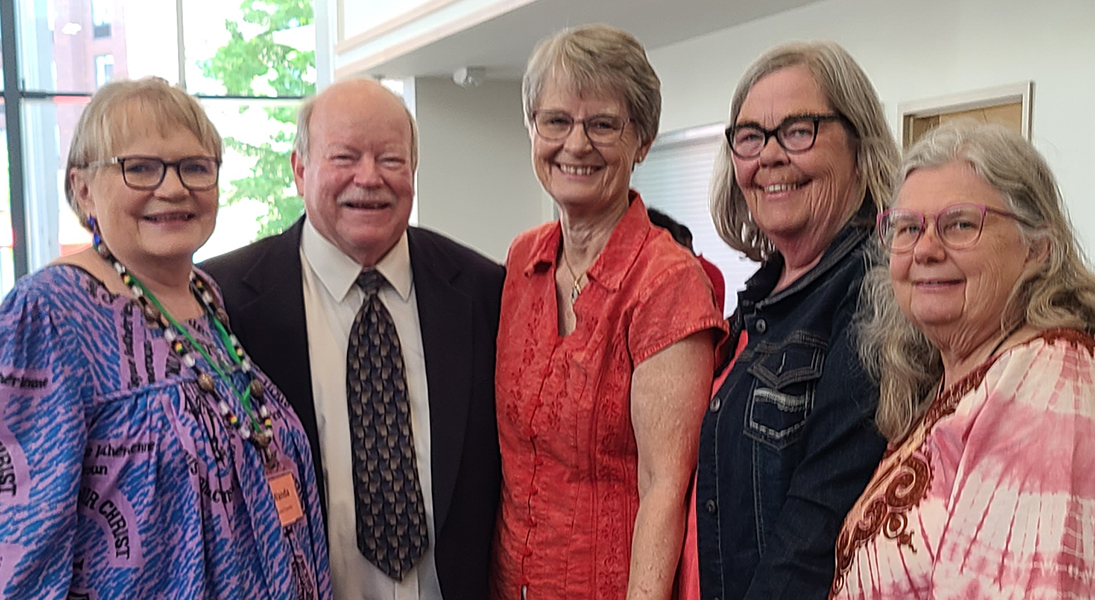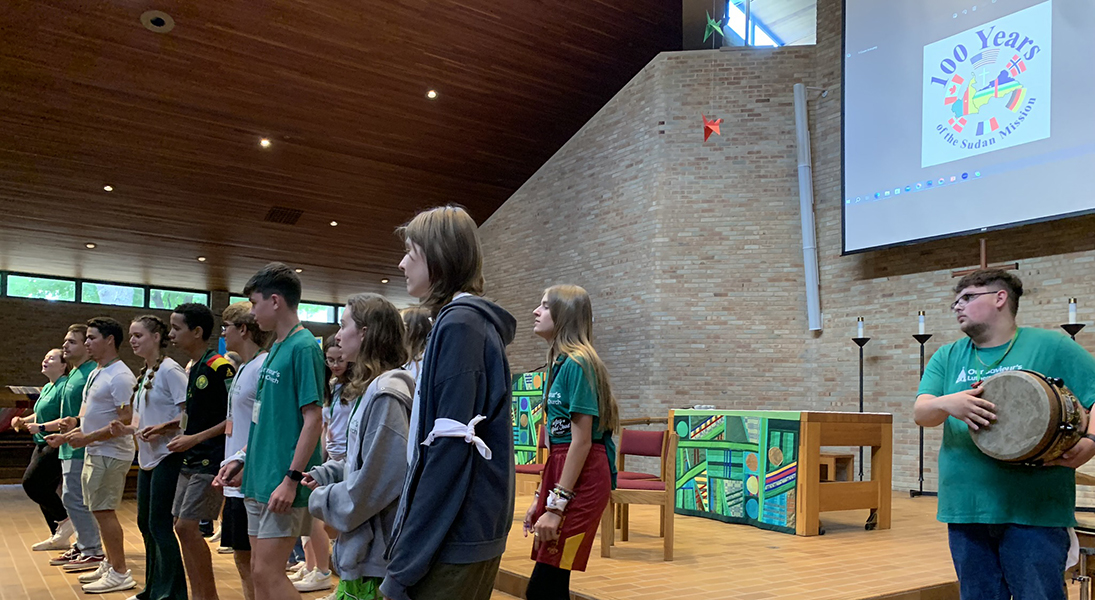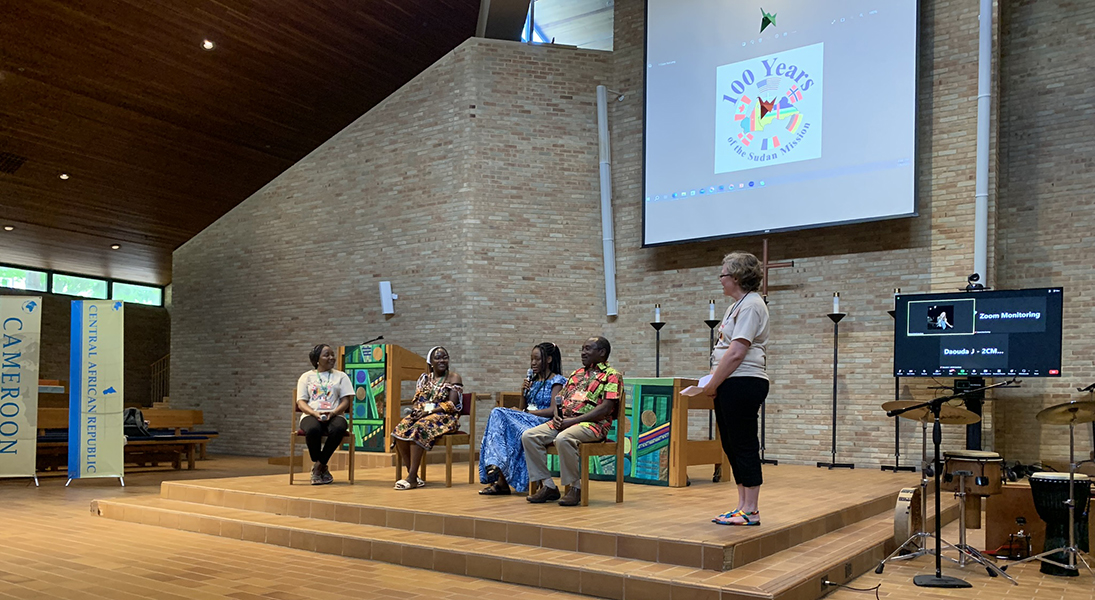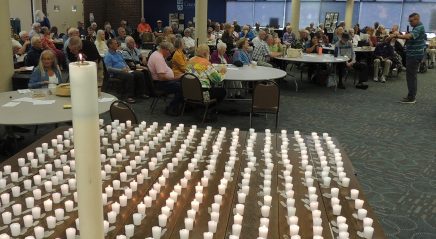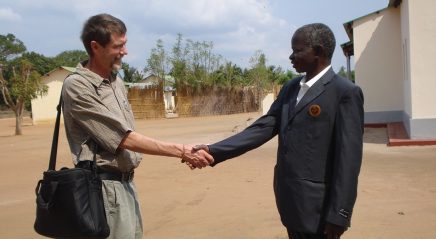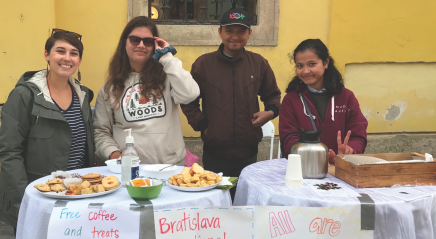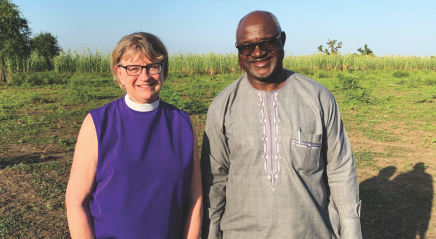From its earliest days in 1923, the Lutheran Sudan Mission was shaped by relationships. That was part of the story Mark Nygard told at the beginning of the Sudan Mission Centennial celebration in July at Luther Seminary in St. Paul, Minn.
His slideshow presentation opened with sepia-toned photos of the first Lutheran missionaries who traveled to the region in Africa, then known as the Sudan: Adolphus Gunderson and his new wife, Anna Marie, as well as two Norwegian deaconesses.
Nygard described the party’s journey into the heart of the region by ferry, train and foot. Their initial goal was to begin an independent mission in Ngaoundéré. They stayed there for a few months, learning the language and teaching. But the nearest place with enough lumber for a new mission building was 53 miles away in the Mboula District. This was the home of the Gbaya tribe, which the country’s administration considered dangerous. Gunderson, however, was warmly welcomed when he arrived—partly due to the relationships he had fostered during his wait in Ngaoundéré.
Within three weeks, the community built eight thatched huts for the missionaries, and the Gundersons made Mboula their new home.
Past, present and future
The Sudan Mission Centennial celebration moved out of the past after Nygard’s talk, with sessions focusing on current life in the region. The original independent Sudan Mission ended in 1953, when the former Evangelical Lutheran Church voted to sponsor its work. Lutheran missionaries have continued to serve in the area since then, and two churches have been founded with Indigenous leadership: The Evangelical Lutheran Church of Cameroon and the Evangelical Lutheran Church of the Central African Republic (CAR). Attendees later heard bishops from the ELCA, Cameroon and CAR talk about what they might accomplish in the future through their work together.
“We just wanted to share the good news of the Gospel, and we wanted to do it through relationship.”
The event’s planning team wanted to honor the past, present and future of Lutheran missionary work in the region and the relationships that make that work possible. They themselves are part of that history. Nygard served as a missionary for over 20 years, with 12 of those years in Cameroon, beginning in 1980. Team member Al Jergenson’s parents began serving as missionaries in CAR in 1948, and he and his three siblings were all born in Cameroon.
Jergenson understands that missionary work has changed over time and that the ELCA’s philosophy of accompaniment has evolved. But he trusts that his parents’ work was always rooted in mutual fellowship. His mother once told him: “We just wanted to share the good news of the Gospel, and we wanted to do it through relationship.”
Joining the celebration
Attendees at the Sudan celebration included current and former missionaries and the children of missionaries, as well as bishops and members of companion synods to the Lutheran churches in Cameroon and CAR, including a companion synod from the Evangelical Lutheran Church in Canada.
The planning team had hoped that Jean Baïguelé, bishop of the Evangelical Lutheran Church of Cameroon, and Joseph Ngoe, president of the Evangelical Lutheran Church of the Central African Republic, would be able to join them in person. It’s their church’s birthday, Nygard said, adding, “We want to be able to celebrate with them.”
While they were unable to secure visas to come to the United States, they did join the gathering digitally. As the celebration began (at 9 a.m. in St. Paul and 3 p.m. in Cameroon), the planning team troubleshot issues with the video stream and found a volunteer to translate from English to French on the spot. “We’re missionaries,” Nygard explained. “We’re used to making things work.”
“A lot of people with a whole bunch of different experiences and a whole bunch of similar experiences coming together and learning more from each other.”
About 12 youth from companion synods attended the event as well, at the end of a weeklong service trip. They were accompanied throughout by Dora Houma and Marina Fomgbami, two International Women Leaders scholarship recipients from Cameroon. Celia Cergogli, a high school junior from Our Savior Lutheran Church in College Station, Texas, said the event was what she had hoped it would be: “A lot of people with a whole bunch of different experiences and a whole bunch of similar experiences coming together and learning more from each other.”
The celebration concluded with worship at Central Lutheran Church in downtown Minneapolis. In her sermon, ELCA Presiding Bishop Elizabeth Eaton spoke about how missionaries in Cameroon and CAR had welcomed people into the church as they were welcomed into community themselves. “I think you are witnesses to this great work that God has done through Christ in breaking down the walls that divide us and making us, as different people … built together into one new structure,” she said.
Eaton echoed the hope of Jergenson, Nygard and many of the other participants at the celebration: That the “new structure” Gunderson began building with the residents of Mboula 100 years ago, which has been strengthened by generations of missionaries and their neighbors in Cameroon and CAR, will continue to shape the church for years to come.



